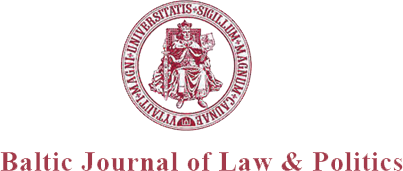Abstract
Conclusion: The subject of the administrative judiciary and its control over the work of the administration occupies an important position among the subjects of administrative law. That is because the goal of the administrative judge is to evaluate the work of the administrative authority if it deviates from respecting the legal rules in its activity and work, which achieves good management with full protection of the rights of individuals from the arbitrariness of the administration. Therefore, the administrative judiciary was considered the sanctuary that individuals resort to to enforce the rule of law and its provisions, and the place that is achieved in maintaining the rights and duties of both the administrative authority and individuals, which ultimately leads to finding a center of balance between the public interest and the private interest. Just as judicial oversight in Iraq is practiced by the General Disciplinary Council, which derives its competence from two sources, the first of which is the amended Civil Service Law No. (24) of (1960) and the second is the amended Law of Disciplining State and Public Sector Employees No. (14) of (1991). Discipline of State and Public Sector Employees No. (14) of (1991), the effective amendment, reduced the competencies of the General Disciplinary Council in this field and made it an appeal body against penalties issued by the administrative head. the introduction: The thesis is the disciplinary authority for each of the administration and the administrative judiciary towards public employees to whom the Civil Service Law applies, and what is stipulated in this law of the reasons for disciplining the public employee, the penalties that befall the employee in the event that the violation attributed to him is proven, and who has the right to impose these penalties If it is proven that the public employee breaches his job duties in an approved manner or due to negligence and negligence that leads to the violation of regulations, laws and instructions, then this requires the imposition of the appropriate disciplinary penalty as a penalty for the violation he committed, and the department or the authority concerned with discipline must take the disciplinary measures stipulated for it, which differ according to legislation. Including those who took the name "disciplinary violations" ( ) In order to prevent the abuse of power, the constitutions-as well as the laws-approved many disciplinary guarantees for the public servant, which enable him to protect his rights and ensure that they are not violated by any party, in order to reach the truth and achieve justice. And those guarantees approved by the laws are only a means to protect the rights of the public employee during the investigation with him, and to provide him with a fair trial, and to achieve disciplinary justice and then the fairness of the punishment that will be imposed on this employee after the completion of the investigation, interrogation and trial procedures, and in the event of neglect or lack of these guarantees Respecting it, the disciplinary decision in this case will be defective, and then the law allows it to be challenged and invalidated. Some call it administrative guarantees, represented by administrative grievances and judicial guarantees. In fact, the imposition of punishment on a public employee if it is proven that he committed the criminal act does not end the disciplinary guarantees granted to him by law, which would strengthen the principles and rules of justice and protect the rights of the public employee. These guarantees are represented in Two important things are: the administrative grievance: it is a petition submitted by the public servant to the disciplinary authority that took over the issuance of the disciplinary decision that includes the punishment against him, in which he demands its cancellation, amendment or withdrawal; Because he believes that this decision was marred by a defect, and he must indicate the type of this defect in his request, and he also requests its cancellation in whole or in part, and the grievance should be submitted to the disciplinary authority, but if the decision was issued by the disciplinary councils, then its decisions are considered final and it is not permissible to appeal. Judicial appeal: It is also among the disciplinary guarantees following the imposition of punishment, and it is a right guaranteed by the constitution in many legal organizations, in which it is permissible to resort to the judiciary, and the law gives the right to the public employee if he is not satisfied with the outcome of the administrative grievance, and he is concerned about this decision to resort to the judiciary administration and to file an appeal against this decision. Research problem: The decisions taken by the disciplinary authority within the framework of the discretionary authority remained unchallenged for a long time, until the administrative judge exercised his control over these decisions. How was the Iraqi Disciplinary Council able to move from minimum control to maximum control after the aforementioned authority was in a fortified fortress that the judiciary could not storm? What is the technique or method used by the Iraqi State Council and the Lebanese State Shura Council to nullify unfair disciplinary decisions against employees? research importance The disciplinary decision may be an administrative decision or a judicial ruling, so a distinction should be made between disciplinary decisions and judicial rulings. In view of the effects that may result from the different nature of each of them and necessitate determining the competent authority to consider the judicial appeal in Iraq, the disciplinary authority in the Iraqi system is exercised through the administrative authorities-whether in the form of an individual (administrative head)-and this is called "presidential discipline" or In the image of a committee or council, and this image is called “disciplinary council”.
